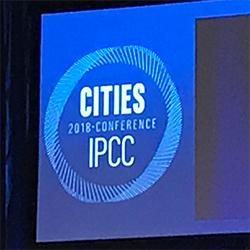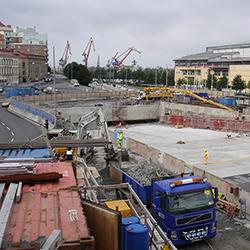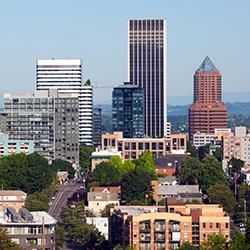
Unprecedented urban changes needed
The United Nations Intergovernmental Panel for Climate Change, IPCC, recently presented a new report focusing on the 1.5 degree goal, the outcome of the Paris Agreement (UNFCCC) three years ago. The Panel connects hundreds of researchers all over the world to assess the latest findings and results of climate change science.
The writing is about as harsh as scientific language can get.
If the report had been like a daily newspaper, the headlines would have been huge and pitch black.
The differences between 1.5° and 2° Celsius of warming are alarming. The higher temperature may completely eradicate the corals and significantly increase the risks for floods, extreme heat and droughts. Half a degree above 1.5° will make hundreds of millions of people susceptible to climate-related poverty, the Panel says.
At the urban scale, extreme heat and floods are expected to be more frequent, causing serious health problems. The increased sea level rise causes further threats to low country cities, like New York, Miami, or – for that matter – Cape Town and Gothenburg.
IPCC presents four paths to the 1.5° target, all of which include reforestation, electric transport systems and rapid development of the carbon capture technology.
“It can be done within the laws of physics and chemistry”, says Jim Skea, co-chair of one of the working groups, to the Guardian. “The final tick-box is the political will”.
Everything is connected
No doubt, a significant part of the political will has to be shown in cities and regions – the call for collaboration among local governments, civil society, universities and industry is repeatedly emphasised.
“Mistra Urban Futures, with its transdisciplinary approach for co-production of knowledge for a sustainable development certainly has a role to play”, says David Simon, Director of the Centre.
“Making the necessary adaptive transformations in urban areas of all sizes worldwide over such a short timeframe means that business as usual is by definition inadequate. New ways of solving problems will have to be found fast – and our Centre’s approach to building teams of academic and public sector practitioners, NGOs, private sector and others using various co-production methods that break down conventional ‘we’ versus ‘them’ attitudes are already in growing demand. Moreover, many key climate change targets can be achieved through appropriate actions in different spheres of activity with thoughtful interventions, rather than requiring only huge dedicated climate investments”.
For more information, please contact David Simon or Jan Riise
Photo: U.S. Department of State Wikimedia Commons







